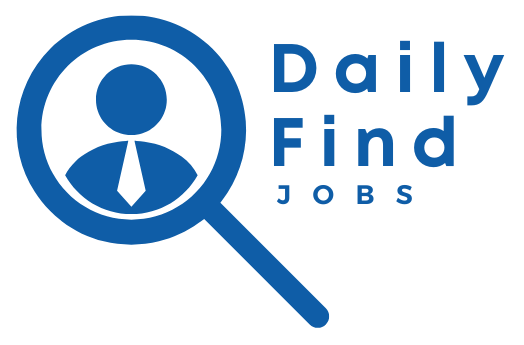Finding a job can be challenging, but creating a job search routine that works effectively is key to success. By defining clear goals and organizing your time efficiently, you can enhance your job search productivity. Make sure to utilize job search tools and network strategically to expand your opportunities. Evaluating and adjusting your routine regularly will ensure it remains efficient and aligned with your career goals.
Define Your Job Search Goals
Before diving into a job search routine, it’s crucial to define your job search goals. Clear goals can help streamline the process and increase your chances of finding the right job. Start by identifying the type of positions you are interested in and the industry you want to work in. Consider your skills, values, and what you are passionate about.
Determine Your Priorities
Think about what matters most to you in a job. Is it the salary, the location, the company culture, or work-life balance? Knowing your priorities will help you target opportunities that align with your career and personal goals.
Set Specific, Measurable Goals It’s essential to break down your overall objective into smaller, manageable tasks. For example, aim to apply to a certain number of jobs each week or improve specific skills pertinent to the roles you’re targeting. Such specificity will help you maintain motivation and track your progress.
Be realistic with your expectations and timeframes. Consider the current state of the job market and adjust your goals accordingly without compromising on quality opportunities.
You can better focus your efforts by knowing exactly what you seek and preventing unnecessary distractions. Allocating time to brainstorm and articulate your job search goals will serve as a backbone to your overall routine.
Your defined goals should guide your daily activities and long-term strategies, ensuring everything you do gets you closer to securing your desired position.
Organize Your Time Effectively
To effectively organize your time, especially during a job search, it’s crucial to allocate specific hours for each task. This ensures you can focus deeply on what need to be done and avoid distractions. A good starting point is crafting a weekly schedule where each day is dedicated to a particular element of your job search. For instance, Monday could be assigned to updating your resume, while Tuesday might focus on searching and applying for jobs.
Schedule blocks of uninterrupted time for these tasks, as multitasking can often lead to reduced efficiency. Use digital tools like calendars or task management apps to set reminders and keep track of your daily progress. Set achievable goals each day to maintain motivation and avoid burnout.
Remember to incorporate short breaks in your routine. These breaks are essential not just for your mental health but also for maintaining productivity throughout the day. A well-rested mind is more creative and efficient, and this can make a significant difference in how you approach tasks.
Designate weekends or specific times during the week for rest and relaxation. It helps you stay refreshed and ready to tackle the job search with renewed energy. If possible, review your schedule weekly to see what works best for you and make necessary adjustments. Flexibility is key to sustaining a healthy and effective job search routine.
Utilize Job Search Tools
Maximize your job search efficiency by leveraging a variety of job search tools available to you. These tools can significantly aid in organizing and streamlining your job search process, providing access to numerous job opportunities and resources.
Online Job Boards: Websites like Indeed, Glassdoor, and LinkedIn offer vast listings of job openings across industries. Utilize advanced search features to tailor results to your preferences like location, salary, and job type.
Company Career Pages: Visiting the career sections on company websites can give you up-to-date information on open positions and company hiring practices, ensuring you have direct access to opportunities within your target organizations.
Email Alerts: Most job search websites offer an option to sign up for email alerts. By setting these up, you receive notifications about new job postings that match your criteria, allowing you to apply promptly and efficiently.
Resume Builders: Online tools that help you craft a professional resume can be extremely beneficial. They ensure your resume is formatted correctly and includes all necessary information to catch the eye of potential employers.
Networking Platforms: While not exclusively job search tools, platforms like LinkedIn allow you to connect with professionals in your field, learn about potential job opportunities, and enhance your personal brand.
By carefully selecting and utilizing these job search tools, you can enhance your job search strategy, increase visibility, and find roles that align with your career goals efficiently.
Network Strategically
Building a strong network is a valuable part of any successful job search routine. Engaging meaningfully with industry professionals can open doors to new opportunities and provide critical insights. Start by reaching out to former colleagues, friends, and professional acquaintances. Attend industry events and workshops whenever possible to meet new contacts.
Use social media platforms like LinkedIn to connect and engage with professionals in your field. Join industry groups and participate in discussions to showcase your expertise. Connect with people who can provide guidance or referrals within your industry.
Plan Your Networking Efforts
Plan your networking activities strategically by setting specific goals such as making a certain number of new connections each week. Regularly update your resume and have a well-prepared elevator pitch ready for both in-person and virtual interactions.
Leverage Connections
When reaching out, personalize your messages and explain why you are connecting. Offer value in return, such as sharing resources or insights that might benefit them. Building genuine relationships, rather than merely collecting contacts, is crucial.
Remember to follow up on conversations and thank those who help you along the way. Keeping these connections engaged and nurtured can be advantageous as your career progresses.
Evaluate and Adjust Routine
It’s crucial to regularly evaluate and adjust your job search routine to ensure it’s effective and aligned with your goals. Start by reflecting on what’s working and what isn’t. You can do this by reviewing the number of interviews you’ve secured, the feedback received, and the types of jobs you’ve been applying to.
If you notice that your current approach isn’t yielding the desired results, it might be time to make adjustments. Consider trying new strategies or revisiting your goals to ensure they are realistic and achievable. Prioritize tasks that yield the best outcomes, and don’t be afraid to eliminate those that don’t add significant value.
Adaptability is key when searching for a job. The job market is dynamic, and your strategy should be flexible enough to accommodate changes. For instance, if new job search tools or trends emerge, be open to incorporating them into your routine. Additionally, seek feedback from trusted mentors or peers to gain insights that may help fine-tune your process.
Measure progress regularly, perhaps weekly or bi-weekly, to stay on track. Set clearly defined milestones and check your progress against these benchmarks. This practice not only keeps you motivated but also ensures you’re moving closer to landing the job that suits you best.


